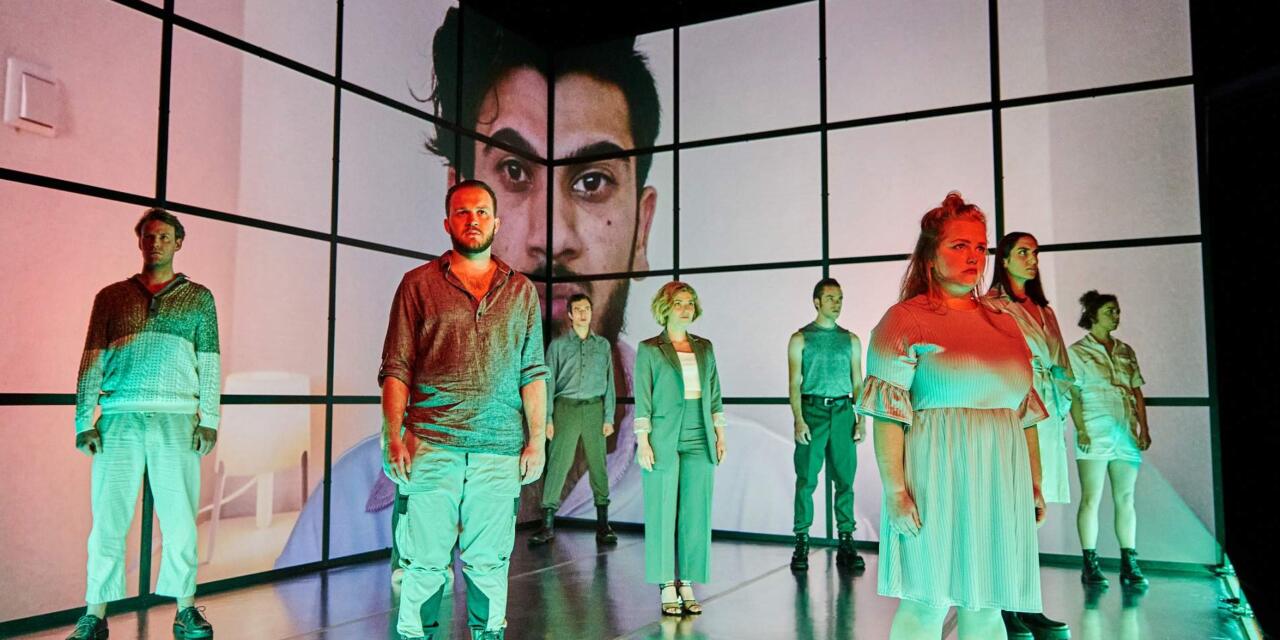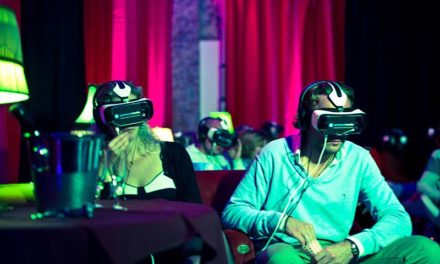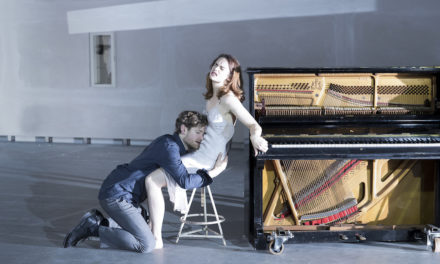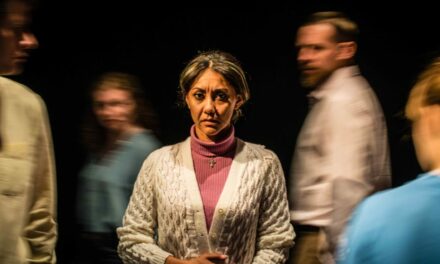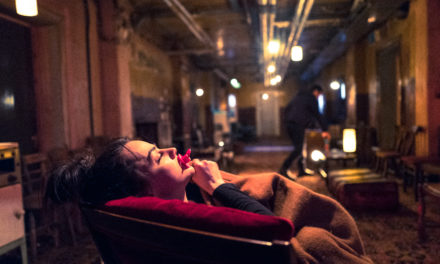Young Europe IV is a large-scale artistic collaboration project to tackle the dominance of stories from a white, male, heterosexual perspective, and create a more diverse and inclusive theatre canon. Eight theatres from seven countries have been selected to join the project, which is organized and coordinated by the European Theatre Convention (ETC). Each participating theatre is working with an emerging playwright on a new ‘diverse’ text, which will be performed in school classrooms across Europe, in order to reach the most inclusive and horizontal audiences possible.
In this article, two Young Europe IV playwrights reflect on their involvement in the project, and the benefits of international collaboration across Europe.
Young Europe IV will kick-off on Thursday 6 October with the launch event Young Europe: Non-Dominant Voices in European Youth Theatre (17:00 – 18:30 CET). More information and access the webinar.
Young Europe IV is a project to produce new plays about inclusive topics in different parts of Europe. What topic have you chosen to focus on – and why is this particularly relevant in your local context?
Zoe Apostolidou: In my work, I have chosen to talk about fatphobia. More specifically, I focus on the stigma, discrimination, and bullying that individuals experience on the basis of their body size. In this play, three individuals unfold their stories and talk about how fatphobia has impacted their lives and shaped their sense of self and the way they relate to others. Stigmatizing bodies because of their size is a phenomenon that is not only relevant in Cyprus but concerns the way Western culture generates and perpetuates size prejudice and discrimination. It is therefore a topic that needs to be addressed and its harmful repercussions on people’s lives should be discussed.
Emel Aydoğdu: I am currently interested in topics such as classicism, racism, our environment, and nature. I am concerned with questions such as: How can a person who belongs to a minority in a society survive/live? How can the environment and nature be valued and respected more?
I’m trying to find a perspective and narrative style during the writing process to formulate these concerns in a bundle. I’m now researching a character who would like to be a fish in the sea, for example. What else does a fish, which may be threatened with extinction, have to say? Is this approach perhaps a refuge for the character, away from reality, or just reality itself?
This concept of switching perspectives, and listening to something that cannot express itself and may be close to disappearing, offers an important reflection on the times we find ourselves in. I see a great need to focus on sensitivity and an awareness of our environment, society, and interpersonal relationships. For me, the text as a medium is one of many ways to do this. I’m not imagining big solutions to the many challenges we face — a short piece can’t do that — but stories can tell different perspectives with a sense of urgency. That will be the focus for me during the writing journey.
The project connects writers and theatres from seven countries. How will this international collaboration impact your creative process?
ZA: The fact that I am given the opportunity to connect and interact with playwrights and theatre professionals from seven countries provides a wider space in which I can explore, discuss my ideas and receive feedback. I believe that the cultural diversity of the group will allow different perspectives on the topic of fatphobia to emerge, a process that can enrich and deepen my understanding of it. As I have already mentioned, fatphobia and the stigma that comes with it are part of a dominant discourse in Western culture. Hearing how the dominant discourse of fatphobia generates non-dominant stories within different socio-cultural contexts would very valuable to me.
EA: I enjoy the exchange with other writers who are more or less in the same process. We can give each other tips or support. It’s very helpful to have allies who started together and get back together after a year with hopefully ‘finished’ pieces, and to look back. How did it go? What difficulties and encounters did I have in the process? I look forward to seeing everyone again and sharing their experiences.
What do you personally hope to achieve from participating in Young Europe IV?
ZA: Understanding how people think and feel has always been a major source of interest and inspiration for me. Through my participation in Young Europe IV I would like to interact as much as possible with other playwrights and theatre professionals in order to understand what they find interesting and inspiring in their work, as well as how they approach their work and the writing process. Through this project, and particularly the mentoring part, I would like to be exposed to different perspectives and methodologies that will encourage me to experiment, take risks, explore my writing style and perhaps become more creative.
EA: My hope would be to be recognized as an artist and as a voice of the minority. The visibility of people who also have something to tell would be a big step forward. We are diverse in Europe and it would be beneficial to hear as many perspectives as possible on stage and behind the stage, and try to get to know and understand each other. Because there is not only the white, privileged perspective. We also have people who experience discrimination every day and they need a platform or opportunity to be heard. Through this program, I am noticed, I can network and engage in global exchange. Through writing – which is an important medium for me – I can give these minorities a voice, share perspectives and thereby find ways to create a listening community.
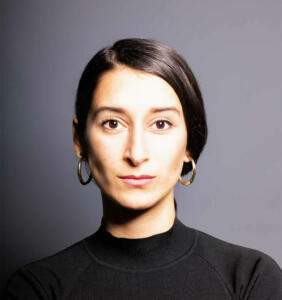
© Denis Walte
Emel Aydoğdu was born in Gaziantep, Turkey in 1990 and is an Alevi-Kurdish theatre director and writer. She was assistant director at Theater Oberhausen from 2017-2019, and her work has been created at Schauspielhaus Bochum, the Junges Schauspielhaus Düsseldorf, the Theater Kohlenpott, and the Theater Oberhausen. Her work mainly deals with documentary, biographical and poetic perspectives of storytelling, and connects her perception and narrative with the stories of others. For Young Europe IV, she is working with Junges! Staatstheater Braunschweig, Germany.
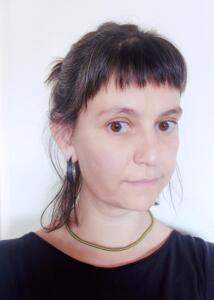
Zoe Apostolidou was born in London, UK in 1981 and grew up in Nicosia, Cyprus. She holds a Doctorate degree in Counselling Psychology from the University of Wales, UK. She has worked in several NGOs and charitable organizations and provided psychological therapy, and psychosocial support to migrants, asylum-seekers, women victims of domestic violence, as well as individuals facing other psychosocial difficulties. Zoe participated in Cyprus Theatre Organisation (THOC)’s writing workshops in 2018 and 2019 where she was given the opportunity to start working on her first play, which was presented at a staged reading in December 2021. For Young Europe IV, she is working with Cyprus Theatre Organisation (THOC), Cyprus.
This post was written by the author in their personal capacity.The opinions expressed in this article are the author’s own and do not reflect the view of The Theatre Times, their staff or collaborators.
This post was written by Christy Romer.
The views expressed here belong to the author and do not necessarily reflect our views and opinions.

